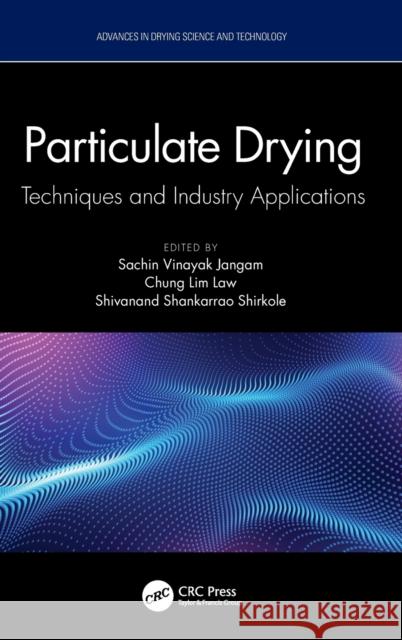Particulate Drying: Techniques and Industry Applications » książka
Particulate Drying: Techniques and Industry Applications
ISBN-13: 9781032074672 / Angielski / Twarda / 2023 / 216 str.
Particulate Drying: Techniques and Industry Applications
ISBN-13: 9781032074672 / Angielski / Twarda / 2023 / 216 str.
(netto: 629,71 VAT: 5%)
Najniższa cena z 30 dni: 579,30
ok. 22 dni roboczych.
Darmowa dostawa!
In the process industry, understanding the unit operation of particulate drying is imperative to yield products with desired properties and characteristics and to ensure process safety, optimal energy efficiency and drying performance, and low environmental impact. There are many techniques and tools available, which can cause confusion. Particulate Drying: Techniques and Industry Applications provides an overview of various particulate drying techniques, their advantages and limitations, industrial applications, and simple design methods. • Covers advances in particulate drying and its importance in the process industry.• Highlights recent developments in conventional drying techniques and new drying technologies. • Helps readers gain insight into selecting the appropriate drying techniques for a particular product. • Summarizes various applications from a wide range of industries, including chemical, food, pharma, biotech, polymer, mineral, and agro-industries. • Envisages future research trends and demands in particulate drying. This book serves as a reference for process and plant engineers as well as researchers in the fields of particulate processing, mineral processing, food processing, chemical engineering, and mechanical engineering, especially those involved in the selection of drying equipment for particulate solids and R&D of drying of particulate materials.
In the process industry, understanding the unit operation of particulate drying is imperative to yield products with desired properties and characteristics and to ensure process safety, optimal energy efficiency and drying performance, and low environmental impact. There are many techniques and tools available, which can cause confusion. Particulate Drying: Techniques and Industry Applications provides an overview of various particulate drying techniques, their advantages and limitations, industrial applications, and simple design methods.
• Covers advances in particulate drying and its importance in the process industry.
• Highlights recent developments in conventional drying techniques and new drying technologies.
• Helps readers gain insight into selecting the appropriate drying techniques for a particular product.
• Summarizes various applications from a wide range of industries, including chemical, food, pharma, biotech, polymer, mineral, and agro-industries.
• Envisages future research trends and demands in particulate drying.
This book serves as a reference for process and plant engineers as well as researchers in the fields of particulate processing, mineral processing, food processing, chemical engineering, and mechanical engineering, especially those involved in the selection of drying equipment for particulate solids and R&D of drying of particulate materials.











